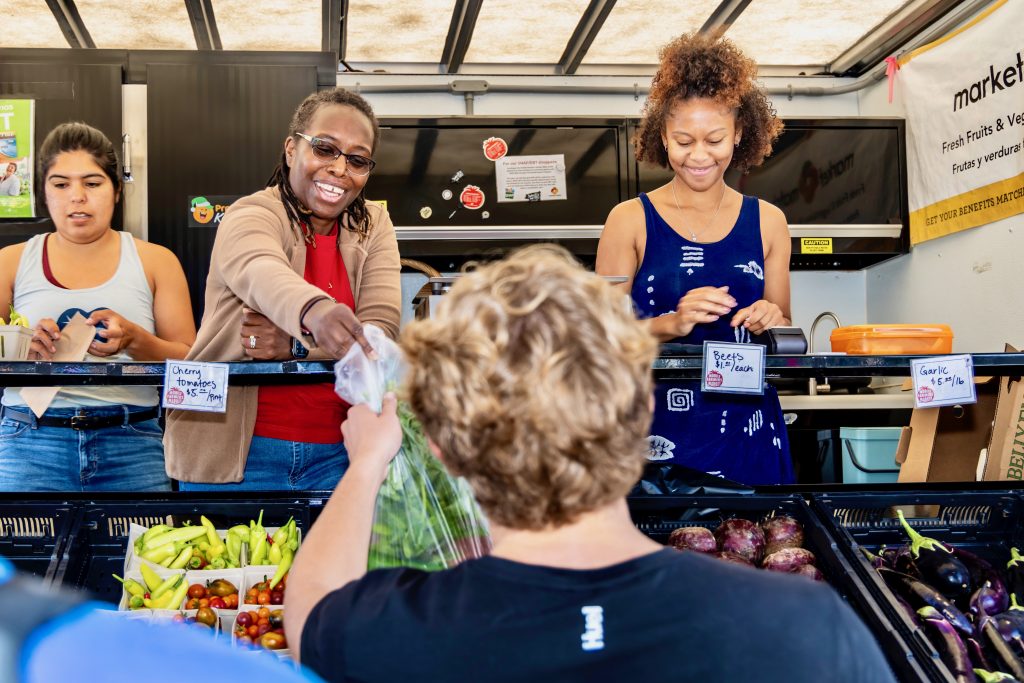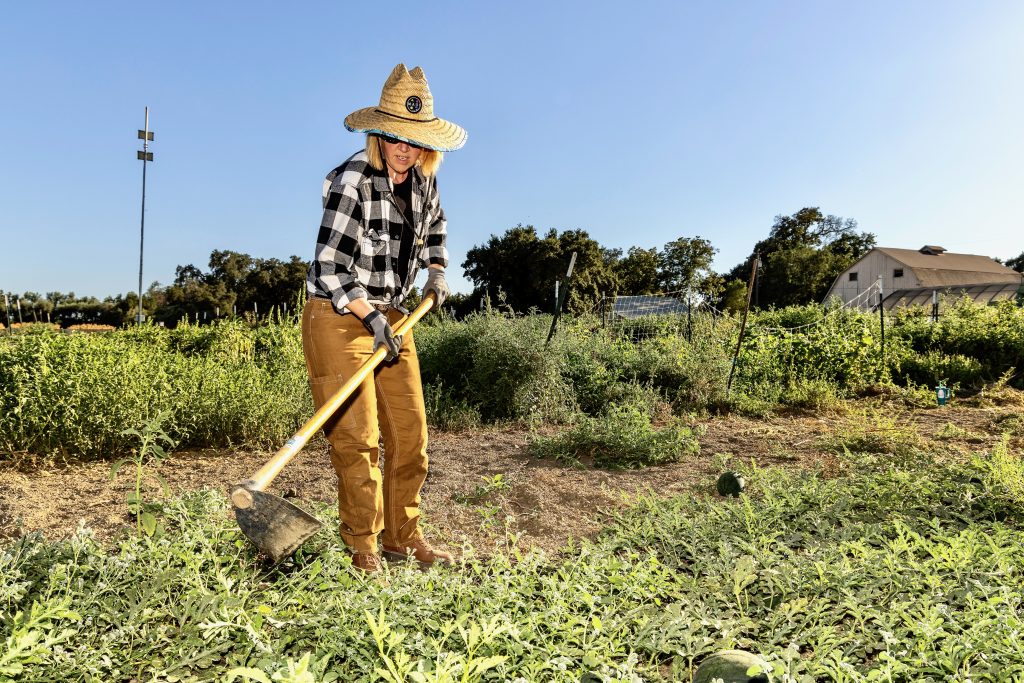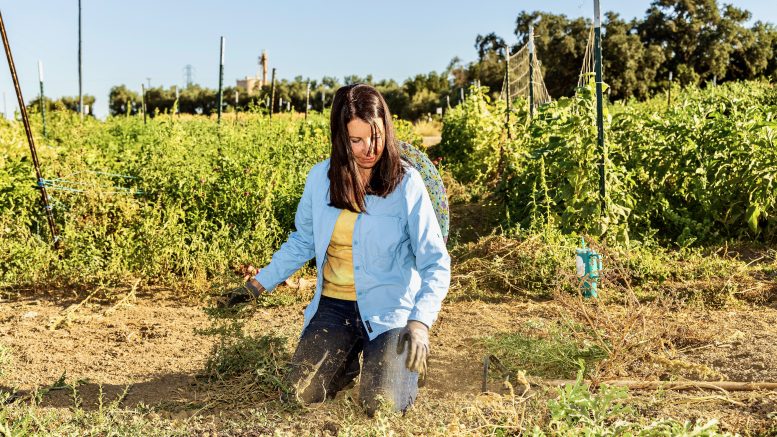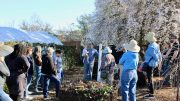By Joan Cusick
“Hands-on” best describes the Beginning Farmer Training Program at the Center for Land-Based Learning in Woodland. And prepare for those hands to get a little dirty.
Over seven months — from mid-February to mid-September — trainees attend classes twice a week, work in the 1-acre training plot, visit existing farms, write their own business plan and sell produce at the West Sacramento Mobile Farmers Market. The center also operates another mobile market that frequents Woodland and parts of Yolo County.
“People are way more excited about growing than they are about selling,” said Program Manager Jon Kupkowski.
The training program began in 2011, Kupkowski said, “because people wanted to farm and they didn’t know how. Being a hands-on program, it’s really adults mostly who have already had careers and they’re looking at how to transition. They don’t want to go back to college for four years, so it’s ‘How do I get to this new career that I want to do in a relatively short amount of time?’
The tuition cost of the 2024 program is $5,150, and covers classes, farm visits, mentorship from the program manager and materials. Veteran tuition assistance and scholarships are available to help offset costs to trainees.

This year’s cohort includes nine beginning farmers who will complete their business plans by mid-September. Not all will be selling fruits and vegetables at the local farmers market. Kyle Stamp of Fairfield, originally planned a vegetable farm but is now considering an agritourism space for youth education and gluten-free products. Other classmates are interested in growing flowers and medicinal herbs, raising livestock, and eventually starting a grazing business to lease ruminant animals to mow down brush.
As these beginning farmers ponder “what’s next?” one option is to lease plots from the Center for Land-Based Learning’s business incubator program. Five farms operate in Woodland, and another four at the West Sacramento Urban Farm.
“We have quite a bit of land that we can lease out to beginning farmers in half-acre plots, and they get access to tools here — the walk-in cooler, the wash station,” said Kupkowski, who is also owner of The ReFarmery in Rio Linda. “They can rent tractors if they need them and be around a bunch of other beginning farmers as well as having staff support.”
But not all of the new farmers will stay in the area. Thelma Kisabuli of Walnut Grove — a U.S. Air Force veteran and mother of three — plans to put her farming knowledge to work not just in Northern California but also in Kenya, where she already has a farm. Cameron Stribling, who currently lives in Davis, plans to start her farm in Georgia, growing storage crops like onions, garlic and potatoes.
“I really appreciate giving back to my community and teaching people how to use the land to eat off of,” Stribling said. “After I moved to California and got involved with this program I realized that I could do it as a living. So that’s what I’m going to try to do.”

While the program won’t be continuing in its seven-month format next year, the Center for Land-Based Learning will continue providing courses for beginning farmers including intensives on business planning, irrigation systems and ag finances, to name a few. The full list of courses will be available on the center’s website starting in October.
This story is part of the Solving Sacramento journalism collaborative. Solving Sacramento is supported by funding from the James Irvine Foundation and James B. McClatchy Foundation. Our partners include California Groundbreakers, Capital Public Radio, Outword, Russian America Media, Sacramento Business Journal, Sacramento News & Review, Sacramento Observer and Univision 19.



Be the first to comment on "The Center for Land-Based Learning grows opportunities for beginning farmers with training in the Capital Region"